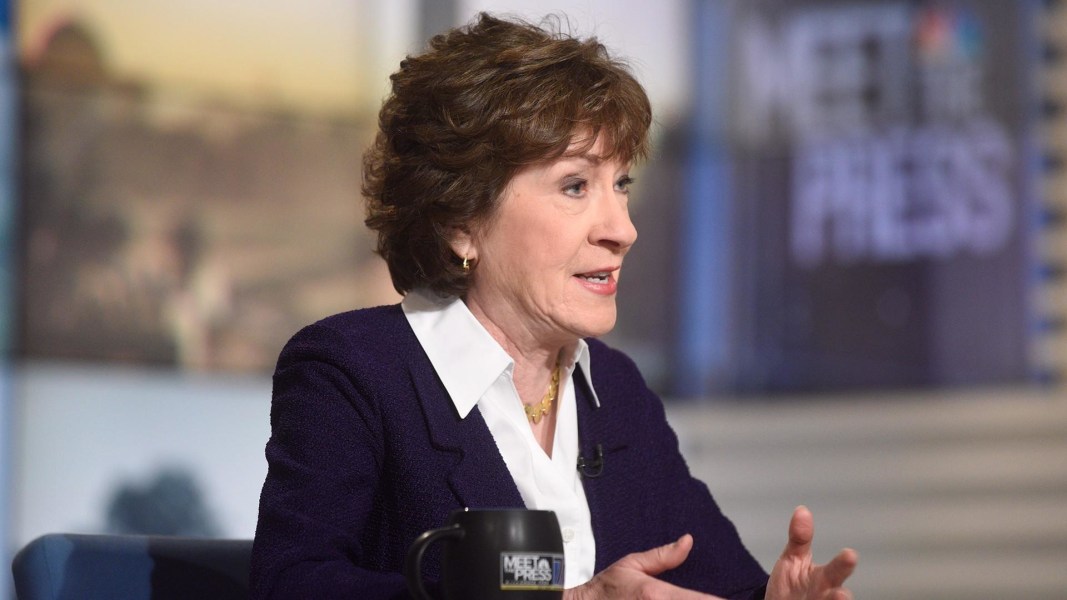Was Sen. Susan Collins snookered by the party leaders to win her swing vote for their tax bill? They promised her they would pass two bills to protect the ACA. She also “got an ironclad commitment that we’re not going to see cuts in the Medicaid/Medicare program as a result of this bill.” But I’ll believe it when we see the final bill. John Hanno
NBC News
Sen. Collins outlines deal-making behind tax vote
By Kailani Koenig December 3, 2017
WASHINGTON — Republican Sen. Susan Collins on Sunday said she received numerous commitments from Republican leadership before she was able to cast her vote in favor of the Senate’s sweeping overhaul of the tax code this week.”I got a commitment that we’re going to pass two bills, including the Alexander-Murray bill, and one that I’ve authored that will help offset the individual mandate repeal by lowering premiums,” she said on Sunday’s “Meet The Press,” referring to bipartisan compromises negotiated this fall aimed at stabilizing the health insurance markets and lowering insurance costs.”I also got an ironclad commitment that we’re not going to see cuts in the Medicaid/Medicare program as a result of this bill,” she added.

Collins: Tax bill will cut deficit through ‘economic growth.
In the very early hours of Saturday morning, the Senate passed their version of the Republican tax plan, which would greatly reduce the corporate tax rate, offer some cuts for individuals, and remove some popular deductions.The tax plan is controversial, and narrowly passed by a vote of 51 to 49, with only one Republican – Sen. Bob Corker, R-Tenn., voting against it.Collins was long seen as one of the swing votes, initially objecting to the inclusion of a repeal of Obamacare’s individual mandate, telling “MTP Daily” last month that tying the mandate to tax legislation is not “a good idea from either a political or a policy perspective.”But Collins said Sunday she was assured of the final Senate bill’s value.“I believe that the amendments that I added on medical expense deductions, on property tax deductions, on helping retirement security for public employees improved the bill,” she said.Collins also maintained that she believes the legislation would not result in an increase of the deficit, because economists she’s talked to claim the bill would result in a higher than expected level of economic growth. Those assertions run contrary to estimates from both the Tax Foundation and the Joint Committee on Taxation, which use dynamic scoring to predict the bill could cost an estimated $516 billion and $1 trillion, respectively.The Senate’s bill still has to be reconciled with the version that passed in the House before a final version can make it to President Donald Trump’s desk to sign.
Author: John Hanno
Born and raised in Chicago, Illinois. Bogan High School. Worked in Alaska after the earthquake. Joined U.S. Army at 17. Sergeant, B Battery, 3rd Battalion, 84th Artillery, 7th Army. Member of 12 different unions, including 4 different locals of the I.B.E.W. Worked for fortune 50, 100 and 200 companies as an industrial electrician, electrical/electronic technician. View all posts by John Hanno
